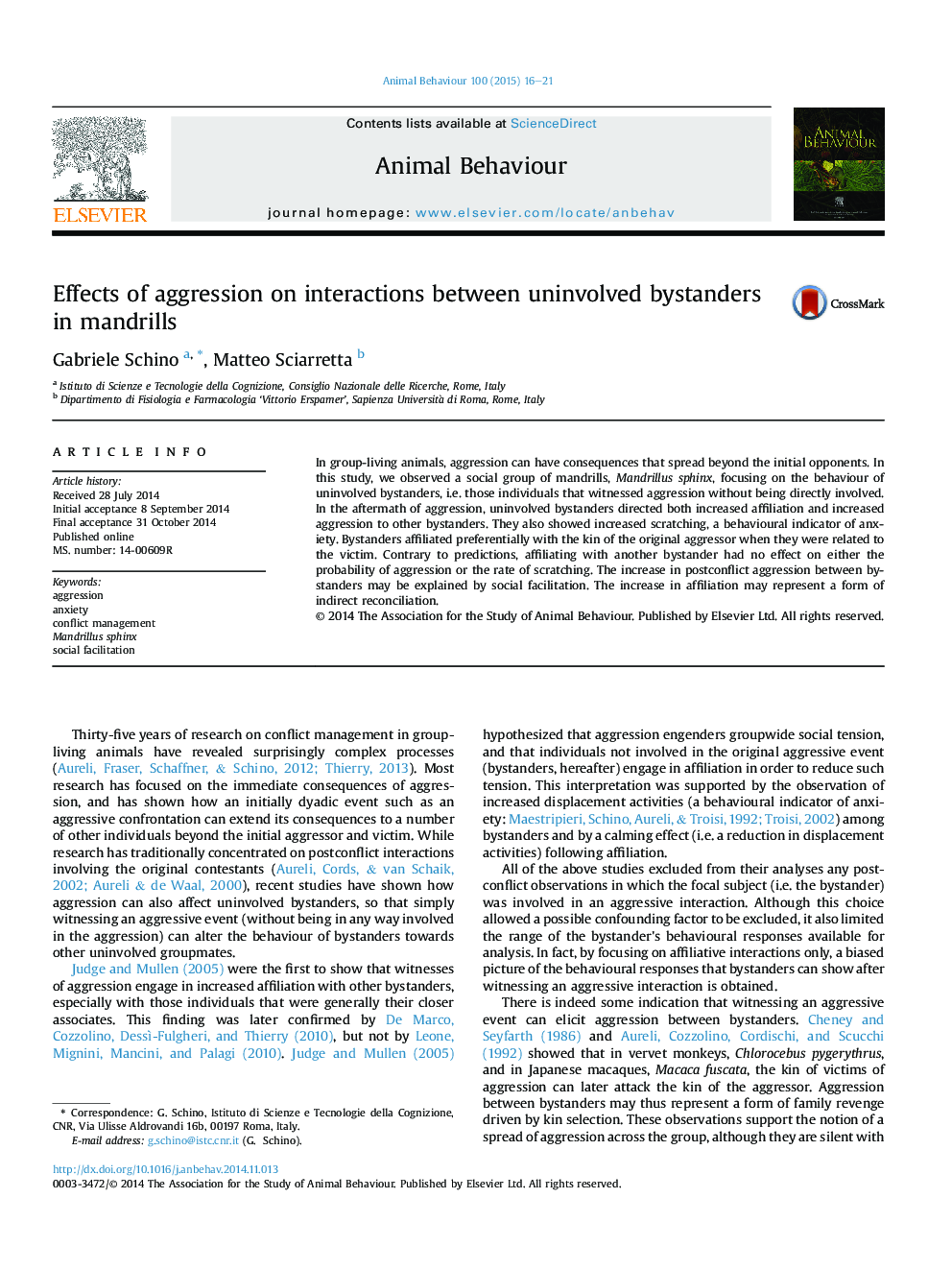| Article ID | Journal | Published Year | Pages | File Type |
|---|---|---|---|---|
| 8490177 | Animal Behaviour | 2015 | 6 Pages |
Abstract
In group-living animals, aggression can have consequences that spread beyond the initial opponents. In this study, we observed a social group of mandrills, Mandrillus sphinx, focusing on the behaviour of uninvolved bystanders, i.e. those individuals that witnessed aggression without being directly involved. In the aftermath of aggression, uninvolved bystanders directed both increased affiliation and increased aggression to other bystanders. They also showed increased scratching, a behavioural indicator of anxiety. Bystanders affiliated preferentially with the kin of the original aggressor when they were related to the victim. Contrary to predictions, affiliating with another bystander had no effect on either the probability of aggression or the rate of scratching. The increase in postconflict aggression between bystanders may be explained by social facilitation. The increase in affiliation may represent a form of indirect reconciliation.
Related Topics
Life Sciences
Agricultural and Biological Sciences
Animal Science and Zoology
Authors
Gabriele Schino, Matteo Sciarretta,
